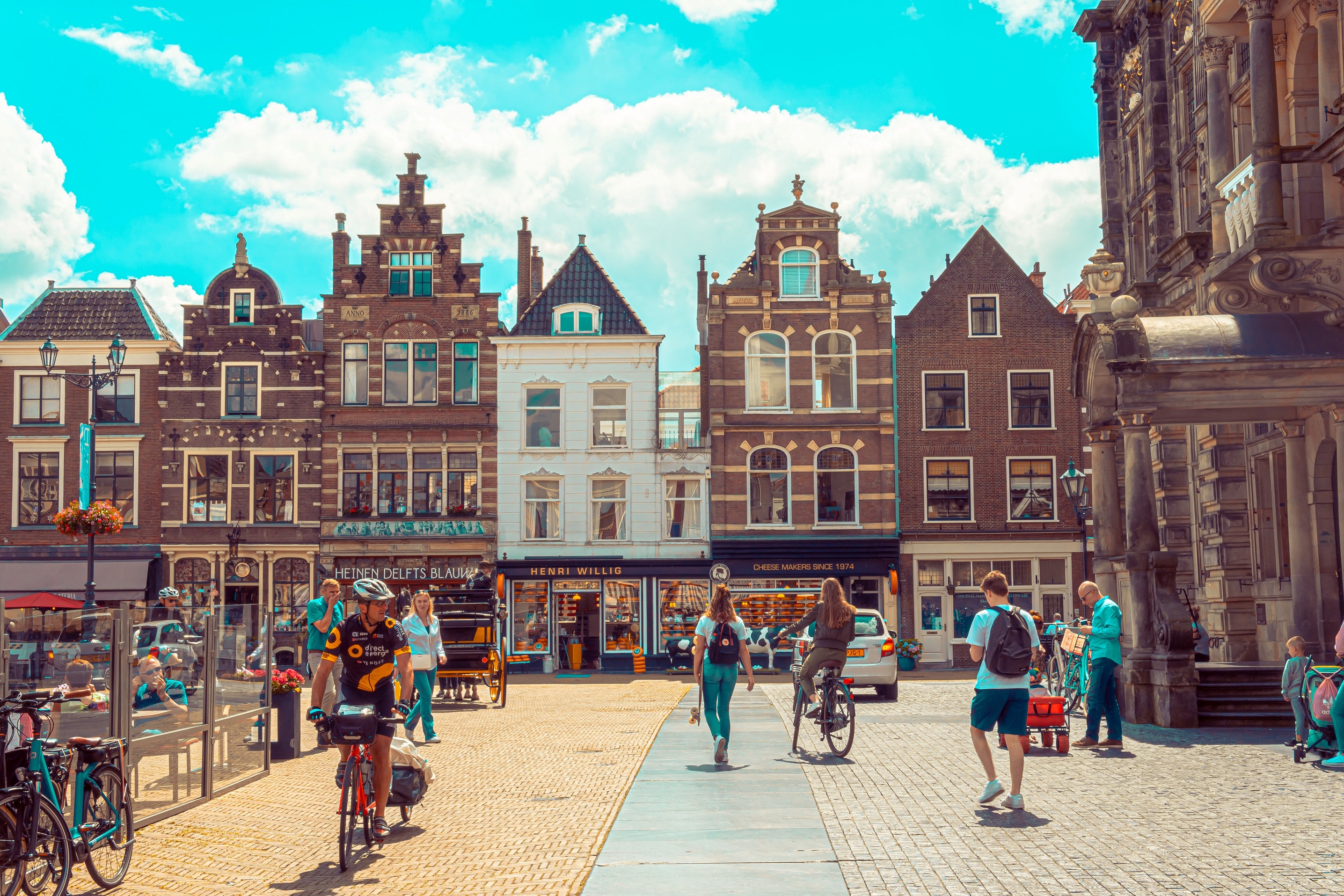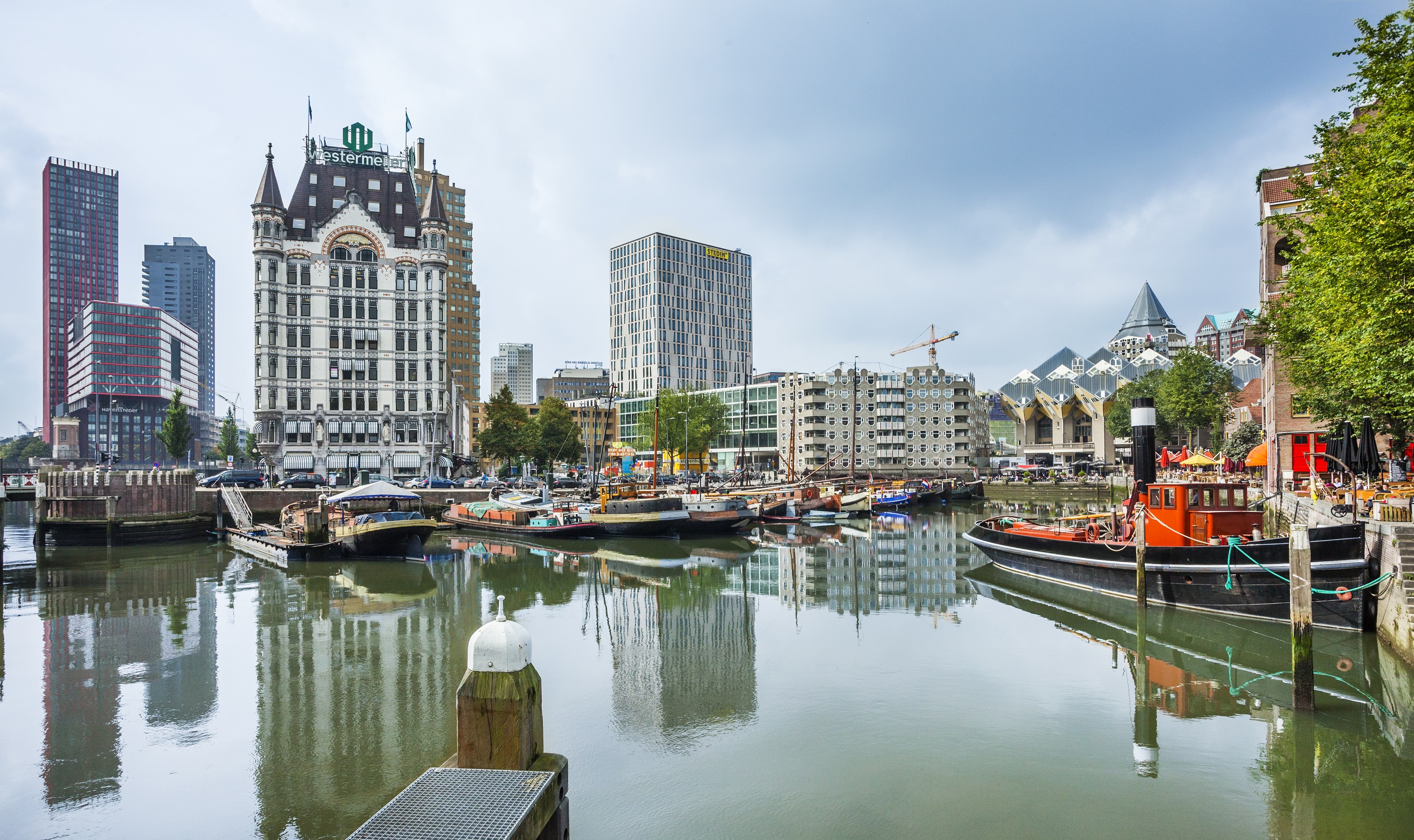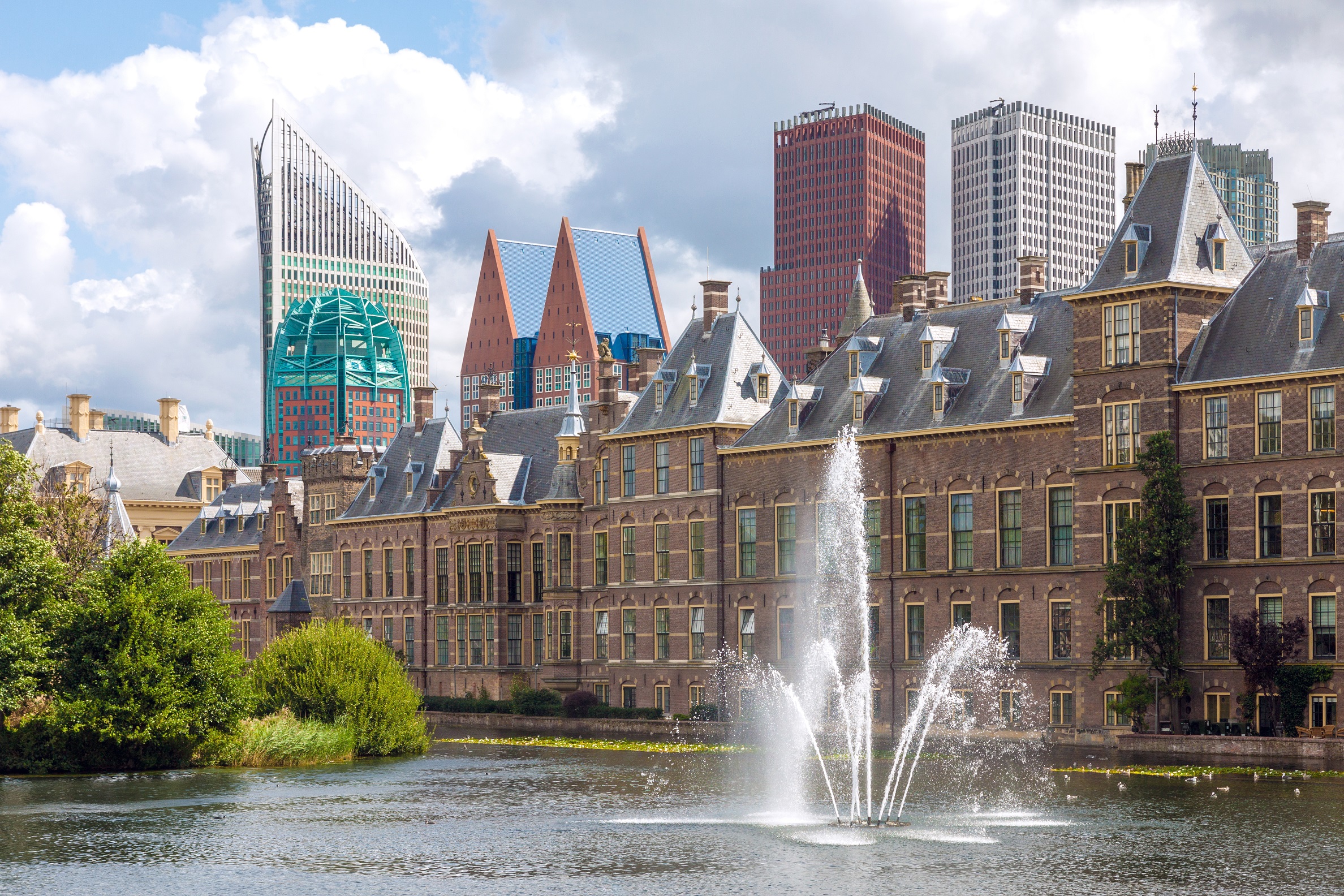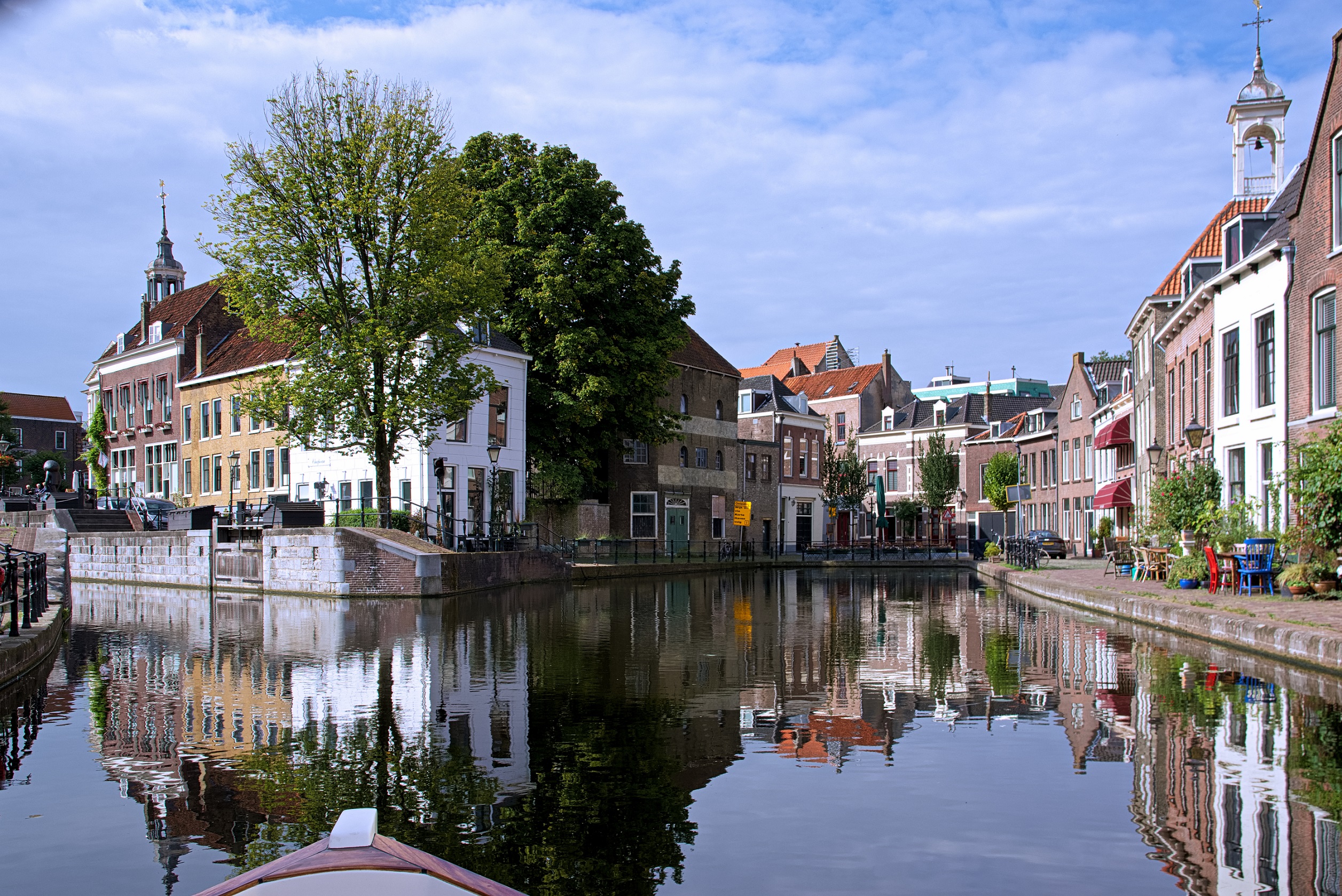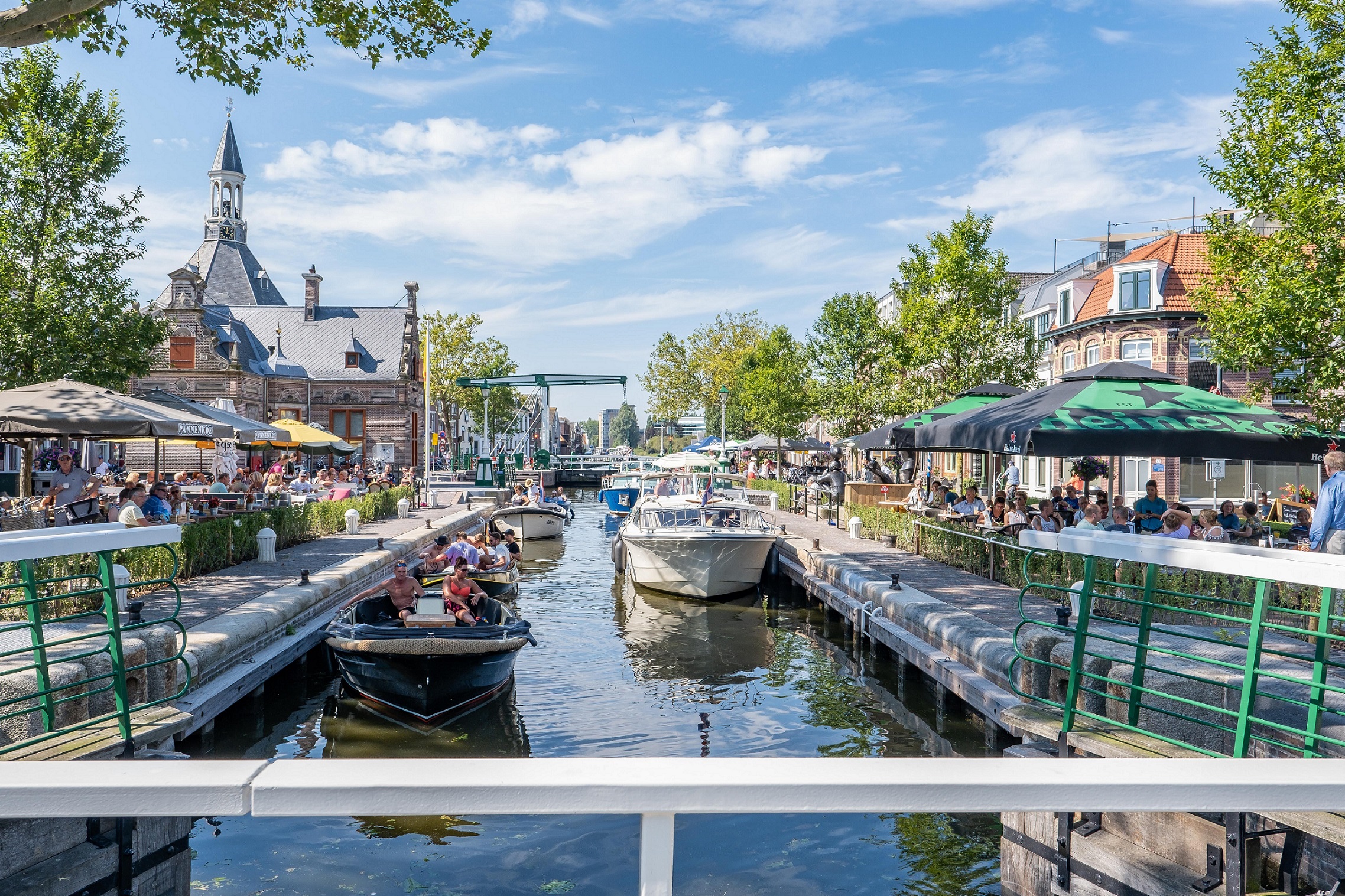Housing
The Netherlands is one of the most densely populated countries in Europe with South Holland among the top two densest provinces in the country. Finding suitable accommodations might take some time and perseverance.
On this page, you will find recommendations for where and how to look, options for temporary accommodations, and other useful information when it comes to finding housing in the Netherlands.
Directly to:
- Renting
- Buying
- Short-stay
- Relocation benefits
Where to look
Delft is centrally located between Rotterdam and The Hague. While Delft is a lovely place to live, the housing market is highly competitive. There are several good options for places to live outside of Delft. Whether you want the feel of a big city or a small village, commuting to and from TU Delft is easy.
This table outlines the cities and villages all under an hour commute to TU Delft. Many people who commute to Delft combine public transportation (train, bus, or tram) with cycling. You can eliminate commute time by cycling to campus from Delft Station instead of walking or taking the bus. Cycling to campus from the station takes approximately 10 minutes.
Click here for more information about how to get around in Delft.
* Please note: commute times are approximations and not guarantees. They are calculated starting from the centre of the respective city or village and ending in the centre of TU Delft.
We encourage you to look for accommodation in the following cities and anywhere in between them:
Delft offers a variety of residential options in its 8 districts . Neighbourhoods differ greatly from each other in style, character, and price. In or near the old city centre of Delft, you can find charming cafes and shops. Outside of the centre, there are green areas with lots of playgrounds and newly built residences.
- Population: 98,679
- More information
Rotterdam is the second largest city in the Netherlands with a rich and fascinating history. It is home to the largest port outside of Asia and draws international/multicultural expats from all around the world for its innovative architecture, tech companies, city planning, and art scene. It offers both active metropolitan areas in the city centre as well as quiet, charming, and historic neighbourhoods just a short bike, walk, or tram ride away from the centre.
- Population: 655,468
- More information
The Hague (Den Haag) is the third largest city in the Netherlands. It’s a bustling, multicultural, and historical city on the coast of the North Sea with lots of museums, parks, restaurants, and shops. It has global significance as the home of the U.N.’s International Court of Justice and the International Criminal Court. An affordable housing permit (huisvestingsvergunning) is possible which allows you to live in an inexpensive rental property. The municipality makes sure that these homes are rented out to people who earn a lower income.
- Population: 553,306
- More information
Schiedam is a smaller city conveniently located in between Rotterdam and Delft. It’s an old city that boasts the tallest historical windmills in the world. In Schiedam, you’ll get the feeling of a charming, canal-lined, Dutch village with the comfort of an easy train ride to the amenities of a metropolitan city.
- Population: 80,000
- More information
Rijswijk
Rijswijk is a small, family-friendly, town with plenty of nature and in close proximity to Delft and The Hague. It’s a peaceful town with lovely old brick homes and a large canal with a convenient cycle path running along its border.
- Population: 57,000
- More information
Leidschendam-Voorburg is a municipality that neighbours The Hague. It consists of two small towns (Leidschendam and Voorburg) and some small villages. Its neighbourhoods offer the beauty and charm of a small Dutch town with windmills, canals, and locks. There is lovely nature throughout and easy public transportation to The Hague, Delft, and Rotterdam.
- Population: 76,500
- More information
Renting
Finding a property to rent
There are several ways to look for rentals in South Holland. You can work with an organization or agent, or you can search independently online.
-
- Funda.nl: nationwide listing of properties to rent or buy
- Pararius: nationwide listing of properties to rent
- Holland2stay is a commercial organization that offers a variety of studios and apartments throughout Holland, including Delft, The Hague, and Rotterdam
- Verra Real Estate: listings of furnished properties to rent and short-stay accommodations to rent, mostly in Leiden, The Hague and Rotterdam
- Xpatrentals: listing of properties to rent or buy
- Serviced apartments: database with over 1,000 apartments throughout the Netherlands
-
- Rotsvast Groep: nationwide agency with an office in Delft for properties to rent or buy
- Rent a Room Delft: mediator for rental studios and apartments in Delft
- Homelets: Delft estate agent for properties to rent or buy
- Björnd Makelaardij: Delft estate agent for properties to rent or buy
- Oude Delft Makelaardij: Delft estate agent for properties to rent or buy
* Please Note: TU Delft is not affiliated with any of these organisations or businesses. Finding housing independently online is a very common method but it can be risky. We strongly advise that you do not rent an apartment without seeing it in person.
Pro tips
Properties to rent can come furnished (gemeubileerd), fitted with curtains and floor coverings (gestoffeerd) or unfurnished (kaal). Before you sign a contract, be sure to find out whether appliances and light fittings are present and what, if any, utility costs are included in the price. You might find that a rental apartment is completely bare, without even carpeting or linoleum on the floor. A popular website for second-hand goods is marktplaats.nl.
Sometimes a landlord (or rental company) asks for extra costs when you sign a lease/rental agreement. For example, acquisition costs or a deposit. Your landlord (rental company) may not ask for key money. Before you sign the agreement please take a look at this page to make sure that no costs are charged that are not permitted by law.
Fraud
Unfortunately the rental market is a target for scammers. Learn more about what to look out for when renting on this page
More information
IamExpat provides useful information on what to keep in mind when renting in the Netherlands, as well as general information about housing.
The city of Delft also has a very useful page entitled 'A home to rent.'
Buying
Some factors to consider when buying a home are location, size, price and condition. Demand for properties in Holland is high and they often sell very quickly. It’s important to be patient, set realistic expectations, and be clear on your criteria. You can search for listings online (see below). An estate agent can provide assistance in locating appropriate properties (in some cases before they have come onto the market), determining a fair price, evaluating the condition of the property and arranging for purchase. The agent will, of course, charge a fee for those services but, especially for someone new to the Dutch market, it might be money well spent.
South Holland’s housing market is developing rapidly with new residential projects constantly popping up. These are called “new-build projects.” You can register for a new-build project within a year in advance of them coming on the market.
Below are some useful resources to get you started with the home-buying process:
- Funda: largest property listing site
- NVM: Dutch Association of estate agents
- VBO: Dutch association of estate agents
- Nieuwbouw Nederland: new-build listings in the Netherlands
- IamExpat: information about buying a house in the Netherlands
- Expatica: information about buying a house in the Netherlands
If you want to buy a house in the Netherlands, you will probably need to make financial and legal arrangements with a bank or lending institution. You might need to arrange for a mortgage (hypotheek in Dutch). To do this, you can either go to a bank or make use of the services of an independent mortgage advisor, such as V&W Adviseurs (based in Delft). It would in any case be wise to shop around and carefully consider your options.
Video recording
Click here to see the zoom session of the June 2024 Buying a House meeting.
Short-stay accommodation
DUWO Housing (not available for families, no pets allowed)
TU Delft works with DUWO, a third-party housing association, to offer international staff and guests short-stay accommodation (up to 1 year) or initial accommodation when coming to the Netherlands for a longer stay. This form of accommodation is only suitable for individuals (and accompanying partners), not for children or pets.
Many internationals use DUWO housing as a preliminary accommodation upon arrival to the Netherlands while they look for more permanent housing. While we can assist you with registering for short-term accommodation via DUWO, you are responsible for finding more permanent housing. We advise you begin searching for permanent housing before you arrive or quickly thereafter as it can be a lengthy process
If you are interested in seeking short-term accommodation, it is important to inform the secretary of your faculty or your HR Advisor as soon as possible. They will be able to offer some assistance in registering you. Please note: short-stay accommodation with DUWO is not guaranteed.
*Please note: TU Delft charges a non-refundable housing fee for this service
BizStay (no pets allowed)
BizStay offers short term accommodation, ranging from a couple of nights up to a maximum of 6 months. Their apartments are fully and luxuriously furnished, available for singles, couples, or families with children. BizStay has apartments at several locations in The Hague, and they are due to open a new venue in the city centre of Delft in the summer of 2024. The rental prices start from €129 per night for a 1 bedroom apartment (excluding service fees). This may be a good temporary option, while you are looking for long(er) term accommodation.
Relocation benefits
As an employee of TU Delft, you may be eligible for reimbursement of relocation expenses. These are the transport costs and travel expenses of the staff member and their family members on the day of relocation. You may be eligible if:
- Your relocation is at least 75 kilometres away from Delft
- You relocate to a home less than 25 kilometres from TU Delft within 2 years of entering into employment
Please consult your HR advisor to see if you can make use of this arrangement. If you meet the criteria for reimbursement, you will receive a one-time reimbursement of relocation expenses. Employees must request three quotations from three different moving companies. The cheapest one will be refunded.


